Cat Stevens
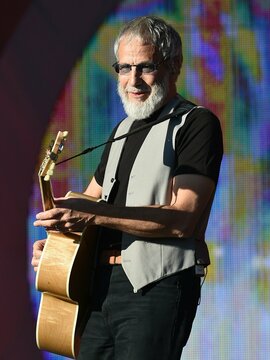
Musician • Singer • Songwriter • Writer • Activist
Birth Name: Steven Demetre Georgiou
Birth Date: July 21, 1948
Age: 75 years old
Birth Place: London, England, UK
English musician Cat Stevens is a much-loved figure on both sides of the Atlantic due to a string of hit singles in the early 1970s, including "Peace Train," "Wild World" and "Morning Has Broken," before his 1978 conversion to Islam, which ended his career as a secular artist for over three decades. Stevens' gift for warm and frequently lovely lyrics that touched on issues of love and childhood endeared him to grade schoolers, Aquarian Age idealists and aging folkies alike, who in turn bestowed star status on the singer-songwriter. Between 1970 and 1977, Stevens enjoyed a slew of Top 5 albums and singles, but a series of events, including a near-death experience in 1976, spurred a spiritual awakening that resulted in his conversion and adoption of the name Yusuf Islam. For much of the next three decades, Stevens concerned himself with charitable matters while recording spoken word or unaccompanied vocals on several Islamic-themed records in the 1990s. He returned to his folk-rock roots with two new albums in 2006 and 2009. Throughout his four-decade career, Stevens' commitment to matters of the heart and soul in both his music and personal life made him an inspirational figure for generations of listeners.
Born Steven Demetre Georgiou on July 21, 1948 in Marleybone, an inner-city area in London, England, Cat Stevens was one of three children by a Greek-Cypriot father, Stavros Georgiou, and a Swedish mother, Ingrid Wickham, who owned a restaurant near the Soho theatre district. He developed an interest in music at an early age, teaching himself to play piano and guitar while absorbing the sounds that arose from nearby Denmark Street, which was the heart of the British music industry for years. Stevens also developed a talent for drawing, which he studied for a year at the Hammersmith School of Art while briefly considering a career as a cartoonist. But his love for music became his primary focus, and he began performing on the coffeehouse circuit. After adopting the stage name "Cat Stevens" - inspired by his belief that it would appeal to animal lovers - he soon caught the attention of former Springfields singer-turned-manager-producer Mike Hurst, who arranged for some demo recordings, which in turn led to a record deal with Deram, a subsidiary of Decca Records.
His debut album, Matthew and Son (1967), was a breezy collection of pop tunes that included the title track, which rose to No. 2 on the U.K. singles chart, as well as the Top 10 hit "I'm Gonna Get My Gun" and the eclectic "I Love My Dog." Also featured on the LP was "Here Comes My Baby," which provided the Tremeloes with a Top 20 hit in the United States that same year. Flush with the success of the album, which reached No. 7 on the U.K. albums chart, and subsequent tours with Jimi Hendrix and Englebert Humperdinck, among others, Stevens then scored a Top 20 hit as a songwriter in May of that year with American singer P.P. Arnold's rendition of an early demo song called "The First Cut is the Deepest," which he had sold to her for £30. The tune would later become a substantial hit for Rod Stewart and Sheryl Crow, among many other performers. The song was also featured on his second album, New Masters (1967), which eschewed the whimsical pop of his previous release in favor of more elaborate and ornate arrangements. Listeners were dismayed with the results, which hobbled the first single, "A Bad Night," in the Top 20, while its follow-up, "Kitty," rose no higher than No. 47 on the U.K. singles chart. The record itself failed to find any purchase on the albums chart, while Stevens himself suffered a personal setback with a bout of tuberculosis that nearly cost him his life.
While recuperating for the better part of the next two years, Stevens made significant changes to his lifestyle, adopting yoga, meditation and a vegetarian lifestyle while studying various world religions. Upon regaining his health, he terminated his contract with Deram and began shopping a wealth of newer, more folk-based and introspective material he had written during his convalescence to various labels. An audition for Chris Blackwell at Island Records resulted in a contract that granted him greater creative control over his songs. With former Yardbirds bassist Paul Samwell Smith as producer and session guitar Alun Davis, Stevens crafted a more organic, intimate sound that blended elements of folk and Eastern music. The resulting album, Mona Bone Jakon (1970) - which rather infamously took its title from Stevens' nickname for his own penis - featured the single "Lady D'Arbanville," a baroque-styled ballad inspired by his breakup with model and future actress Patti D'Arbanville. The song reached No. 8 in the U.K. and saw modest airplay in America.
Stevens' true breakthrough came with his fourth LP, Tea for the Tillerman (1970), which reached gold record status in both England and America within six months of its release. Singles like the haunting Top 20 hit "Wild World," which also generated hit cover versions by reggae artists Jimmy Cliff and Maxi Priest, and "Father and Son," struck a chord with listeners with their folk-rock arrangements and wistful lyrics. Stevens was soon minted as a leading figure in the growing singer-songwriter movement, enjoying the same level of star status as Elton John, James Taylor and Carly Simon, whose relationship with Stevens inspired her song "Anticipation." Soon after, his fifth album, Teaser and the Firecat (1971) continued his winning streak by reaching No. 2 on the strength of the singles "Peace Train" and "Morning is Broken," both of which topped the adult contemporary chart, and the enduring favorite, "Moon Shadow." Its immediate follow-up, Catch Bull at Four (1972), was a huge hit on the albums chart, holding the top spot there for over three weeks. However, it generated no significant hit singles.
Stevens' incredible string of successful releases culminated with the soundtrack to Hal Ashby's "Harold and Maude" (1971). The cult favorite did much to preserve Stevens' status as a spokesperson for young adults on the cusp of maturity, as evidenced by anthemic songs like "If You Want To Sing Out, Sing Out" and "Where Do the Children Play?" After its release, Stevens left the United Kingdom to live as a tax exile in Brazil, but donated the money he would have paid to the British coffers to UNESCO. While there, he experimented with his sound, stripping away the folk roots of his material and adopting a soulful sound for his seventh album, Foreigner (1973). The record, which devoted an entire side to an extended suite, did not fare as well as its predecessors in regard to hit singles, but still generated gold status by reaching No. 5 on both the U.S. and U.K. charts. He returned to his folk-rock sound with his next album, Buddha and the Chocolate Box (1974), which featured the Top 10 hit "Oh Very Young." The summer of that year saw him release a cover of Sam Cooke's "Another Saturday Night," which reached both the U.S. Top 10 and U.K. Top 20 singles. The following year, his career to date was encapsulated with his Greatest Hits (1975) album, which quickly reached multi-platinum status in America.
Stevens appeared to put his past behind him following the release of the Greatest Hits compilation. His subsequent efforts, Numbers (1975), a science fiction-themed concept album, and Izitso (1977), which hewed closer to the synthesizer-driven sound of Foreigner, did not reap the same rewards as his earlier efforts. His final hit single, "(Remember the Days of The) Old School Yard," was a minor Top 40 hit, while Back To Earth (1978) was his final album of the 1970s, as well as his last to feature contemporary Western music for the next three decades. That same year, he formally converted to Islam, adopting the name Yusuf Islam and leaving behind the trappings of pop stardom for a life spent in pursuit of religious study and philanthropy. His path to Islam had begun two years earlier, when he nearly died from drowning in the ocean near Malibu, CA. He soon became deeply invested in finding his religious identity, which became rooted in Islam following the receipt of the Qur'an as a gift from his brother. Upon embracing his new religion, Stevens ended his popular music career to focus on a variety of causes, including the founding of an Islamic primary school in London and the Small Kindness charity, which aided Muslim famine victims and orphans in Europe, Asia and Africa.
Though Stevens maintained a low profile throughout the ensuing three decades, his faith often brought him unwanted attention from the media when Islam was at the center of national and global controversies. He was incorrectly quoted by the British press as being in favor of the fatwa launched against author Salman Rushdie by the Iranian government after the release of the book The Satanic Verses (1989), and spoke out against the attacks in New York City on Sept. 11, 2001. He later gave his first public performance of "Peace Train" in over 20 years as part of the October 2001 Concert for New York City. Three years later, his deportation from Israel in 2000 over alleged contributions to the Hamas organization in Palestine led to his inclusion on a "no fly" list in America. Stevens was subsequently removed from a flight to Washington in 2004 and deported back to England before being placed on a "watch list" by the Department of Homeland Security in America. International uproar over his inclusion led to British Foreign Secretary Jack Straw appealing directly to Secretary of State Colin Powell to have Stevens removed from the list. An investigation led to the discovery that he had been mistaken for another man named Youssef Islam, which lifted the flight ban. In 2004 and 2008, he successfully won libel suits against two British news agencies that alleged that he had contributed to terrorist organizations and refused to work with unveiled women at a music event in Germany.
In the 1990s, Stevens began making inroads back to his onetime first love, music. His initial releases were based on Islamic themes, including a 2000 children's album called A is for Allah. But with the encouragement of the international Muslim community, Stevens returned to his roots with a new version of "Peace Train" featuring Paul McCartney and David Bowie in 2003. A 2004 charity duet with British pop singer Ronan Keating on "Father and Son" reached No. 2 on the U.K. singles charts. Two years later, An Other Cup (2006), Stevens' first pop album since 1978, was released on the 40th anniversary of the release of his first album, Matthew and Son. Despite considerable promotion throughout Europe on the part of Stevens, the album reached only No. 52 on the Billboard 200, though it performed significantly better abroad, reaching gold sales status in the U.K. and platinum in Germany. A slew of charity performances soon followed, as did a 2009 cover of George Harrison's "The Day the World Gets Round" which benefited children in Gaza. That same year, Stevens released Roadsinger (2009), which he promoted on American television as well as in the U.K. The album, which reached No. 41 on the stateside albums chart, preceded a world tour that ran through 2011 with stops throughout Europe and Australia, though several American shows were postponed due to issues with Stevens' work visa. In 2012, the stage musical "Moonshadow," which featured a broad array of music from Stevens' career, made its debut in Melbourne, Australia.
By Paul Gaita
Credits
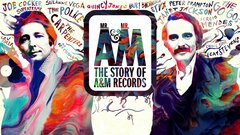
Mr. A & Mr. M: The Story of A&M RecordsStream

Today With Hoda & Jenna

A Cat's Attic: Yusuf/Cat Stevens

Cat Stevens in Concert

The Late Show With Stephen ColbertStream

Good Garbage

Yusuf: Gold Digger (Live)

Glastonbury

The Tonight Show Starring Jimmy FallonStream

Yusuf: You Are My Sunshine (Live)

CBS This Morning: Saturday

Radio 2 in Concert

Island 50

The Project

Cat Stevens - Live at the Island 50 Festival
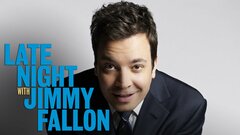
Late Night With Jimmy Fallon

Arctic Tale

The One Show

Yusuf: Heaven/Where True Love Goes

The Colbert Report

Tavis Smiley
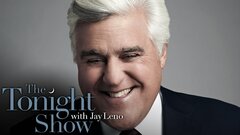
The Tonight Show With Jay Leno
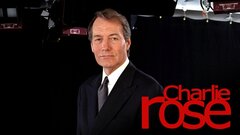
Charlie RoseStream

This Morning

CBS News Sunday Morning

Cat Stevens: Peace Train
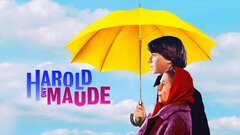
Harold and MaudeStream

Cat Stevens: Wild World

Cat Stevens: Father and Son

Cat Stevens: Hard Headed Woman






